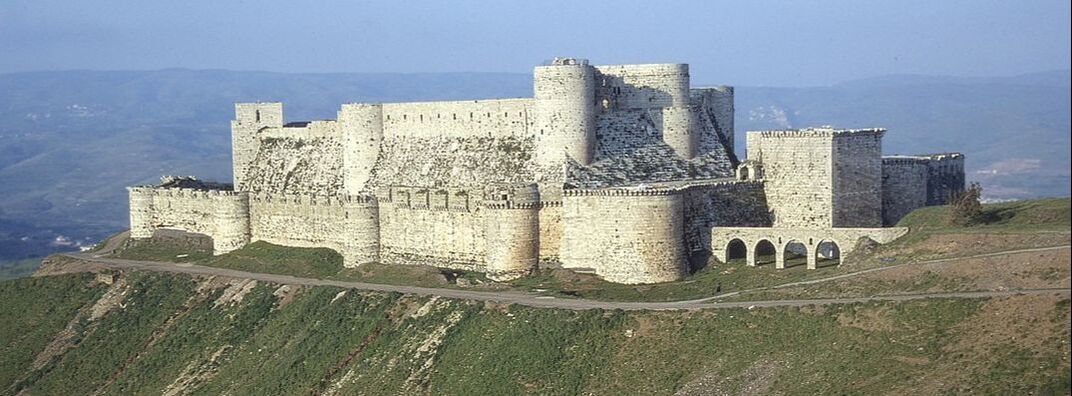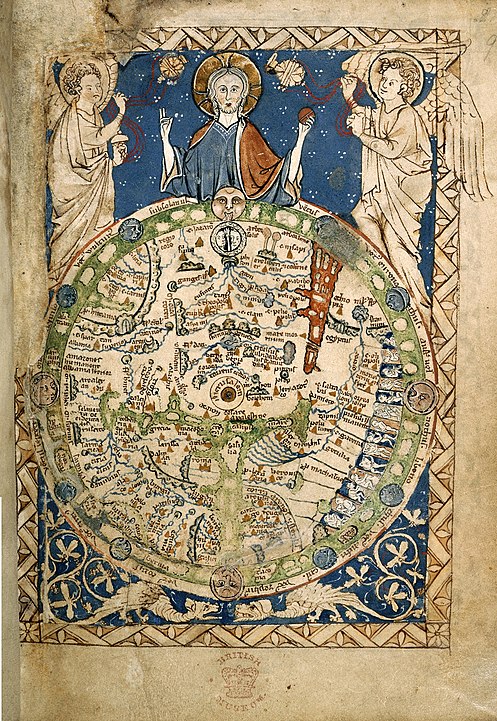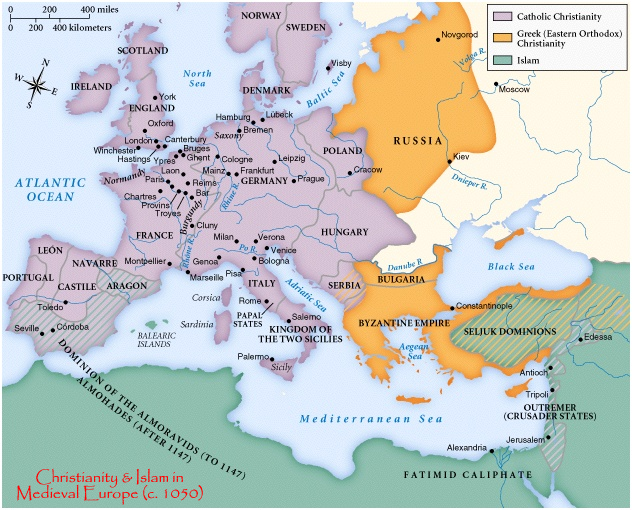Lesson 3 - The Crusades.
Big questions and some initial answers
At the start of the last lesson you will have seen some big questions that we have already begun to address. We know that land ownership in the Middle Ages was both a source of power (feudalism) and a cause of war. We have learnt that armies were relatively small in 1066. William's invasion force was somewhere between 7000 -10,000 men. When allied forces crossed the channel for D-Day in 1944 they had around 150,000 soldiers. Why do you think armies were relatively small? We have learnt that soldiers only had to fight for a certain number of days in the year and that new techniques or technology can be important to the outcome of war. For example, William's use of mounted knights were critically important to the outcome of the battle in 1066. We have seen that wars can be important turning points in history that can have a significant long-term impact of peoples' lives (e.g. English language). Finally, we have understood that God was very important to medieval people. William's conquest of England was justified because Harold broke a holy promise and the church played an important role in encouraging people to believe that William has the right to rule England. In our second case study we are going to see how religion - not for the last time - can be an important cause of war.
At the start of the last lesson you will have seen some big questions that we have already begun to address. We know that land ownership in the Middle Ages was both a source of power (feudalism) and a cause of war. We have learnt that armies were relatively small in 1066. William's invasion force was somewhere between 7000 -10,000 men. When allied forces crossed the channel for D-Day in 1944 they had around 150,000 soldiers. Why do you think armies were relatively small? We have learnt that soldiers only had to fight for a certain number of days in the year and that new techniques or technology can be important to the outcome of war. For example, William's use of mounted knights were critically important to the outcome of the battle in 1066. We have seen that wars can be important turning points in history that can have a significant long-term impact of peoples' lives (e.g. English language). Finally, we have understood that God was very important to medieval people. William's conquest of England was justified because Harold broke a holy promise and the church played an important role in encouraging people to believe that William has the right to rule England. In our second case study we are going to see how religion - not for the last time - can be an important cause of war.
Heritage Object - Krak des Chevaliers castle, Syria

Built in the 12th century, Krak des Chevaliers is one of the most famous castles in the world that became a model for castle building throughout Europe. In 1142 it was given to the order of the Knights Hospitaller as a base to protect Christian interest in the Holy Land. It remained in their possession until it fell in 1271. In 2006, the castle was recognised by UNESCO as a World Heritage Site. It was partially damaged in the Syrian civil war from shelling and recaptured by the Syrian government forces in 2014.
We'll begin through two very different introductions. The film of the left in French is an extraordinary use of high definition graphics to produce an 8k virtual tour of the castle. Do not try to watch it in school, you'll crash the wi-fi. The film of the right was produced by the AFP News Agency in 2012 and it shows how the castle became the centre of the ongoing civil war in Syria. It provides a very interesting insight into how war continues to be fought in the 21st century. What can you learn from the film?
We'll begin through two very different introductions. The film of the left in French is an extraordinary use of high definition graphics to produce an 8k virtual tour of the castle. Do not try to watch it in school, you'll crash the wi-fi. The film of the right was produced by the AFP News Agency in 2012 and it shows how the castle became the centre of the ongoing civil war in Syria. It provides a very interesting insight into how war continues to be fought in the 21st century. What can you learn from the film?
|
|
|
The Crusades
|
The most important place on earth for Christians was Jerusalem in Palestine. Jesus had died in Jerusalem. Christians wanted to go there on pilgrimage. They wanted to see holy relics like the crown of thorns worn by Jesus and the nails from the holy cross. (See the map of the world below from 1265 and click to enlarge and/or watch Professor Bartlett's short film about Mappa mundi). But Palestine was not part of Christendom (see map below). Even though Christians called Palestine their Holy Land they did not control it. The Holy Land was ruled by Muslims and Jerusalem was a holy city for Muslims as well. For hundreds of years they let Christians go on pilgrimages to Jerusalem and all was well.
|
|
In 1071 a different group of Muslims took over Palestine. These Ottoman Turks captured the Holy Land, stopped pilgrimages and threatened the Eastern Orthodox Christian (Byzantine) church led from Constantinople . The Pope promised to help the Eastern Orthodox church. In 1095 he preached a sermon which called on all Christians to win back the Holy Land from the Muslims or 'Saracens' as they were often called. This is what the Pope said:
‘Brothers, I speak as a messenger from God. Your fellow Christians in the east desperately need help. The Saracens have attacked them and have pushed deep into Christian land. They are killing great numbers of Christians. They are destroying churches and land. In the name of God, I beg you all to drive out these foul creatures.
Your own land has too many people. There is not much wealth here. The soil hardly grows enough to support you. Set out for Jerusalem. Take that land from the wicked infidel and make it your own.
If you die on the journey or if you are killed in a battle against these Saracens all your sins will be forgiven at once. God Himself has given me the power to tell you this. Some of you have spent too much time fighting against your fellow Christians. But now you must fight the Saracens. Let bandits become soldiers. Soldiers who have been fighting for money must now fight for heavenly riches.’
Pope Urban II - 1095
|
|
This speech is amongst the most significant in history, with enormous long-term consequences for the relationship between Christian and Muslim. The short film extract (left) from Professor Bartlett provides a useful overview.
In the short-term, Pope Urban II's speech was a simple declaration of war; a war motivated by religion, a 'crusade'. As we will see in the Crusades and throughout history, war that has a religious dimension is even more brutal than usual. Go to the activity for the Case study. |


